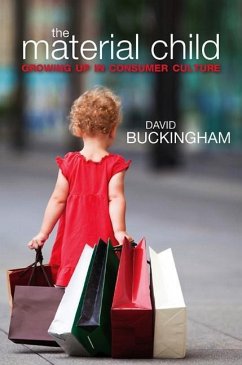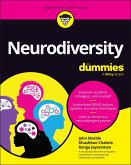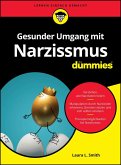Children today are growing up in an increasingly commercialised world. But should we see them as victims of manipulative marketing, or as competent participants in consumer culture?
The Material Child provides a comprehensive critical overview of debates about children's changing engagement with the commercial market. It moves from broad overviews of the theory and history of children's consumption to insightful case studies of key areas such as obesity, sexualisation, children's broadcasting and education.
In the process, it challenges much of the received wisdom about the effects of advertising and marketing, arguing for a more balanced account that locates children's consumption within a broader analysis of social relationships, for example within the family and the peer group. While refuting the popular view of children as incompetent and vulnerable consumers that is adopted by many campaigners, it also rejects the easy celebration of consumption as an expression of children's power and autonomy.
Written by one of the leading international scholars in the field, The Material Child will be of interest to students, researchers and policy-makers, as well as parents, teachers and others who work directly with children.
Hinweis: Dieser Artikel kann nur an eine deutsche Lieferadresse ausgeliefert werden.
The Material Child provides a comprehensive critical overview of debates about children's changing engagement with the commercial market. It moves from broad overviews of the theory and history of children's consumption to insightful case studies of key areas such as obesity, sexualisation, children's broadcasting and education.
In the process, it challenges much of the received wisdom about the effects of advertising and marketing, arguing for a more balanced account that locates children's consumption within a broader analysis of social relationships, for example within the family and the peer group. While refuting the popular view of children as incompetent and vulnerable consumers that is adopted by many campaigners, it also rejects the easy celebration of consumption as an expression of children's power and autonomy.
Written by one of the leading international scholars in the field, The Material Child will be of interest to students, researchers and policy-makers, as well as parents, teachers and others who work directly with children.
Hinweis: Dieser Artikel kann nur an eine deutsche Lieferadresse ausgeliefert werden.
"The Material Child cuts through the sanctimonious moral rhetorics and panics of contemporary life illuminating the complexities that have made the child consumer the site of unrelenting cultural anxiety. With characteristic insightful and deft analysis, David Buckingham successfully reframes how we might comprehend public debates regarding children and the commercial world and thus how we may forge new responses to ongoing changes in economic and social life. This work immediately takes its place in as a standard and must-read for anyone interested in childhood, politics, media and consumer culture." -- Daniel Thomas Cook, Rutgers University
"This book represents a timely and most welcome intervention into the polarised and emotive debates about children and consumer culture. David Buckingham takes us on an authoritative journey through the twists and turns of the arguments towards a more nuanced understanding of the complexities of the unequal diverse and relationships children now have with the global commercial markets. This book is essential reading for those seeking to understand children's experiences of living in contemporary capitalist societies." -- Allison James, University of Sheffield
"This book represents a timely and most welcome intervention into the polarised and emotive debates about children and consumer culture. David Buckingham takes us on an authoritative journey through the twists and turns of the arguments towards a more nuanced understanding of the complexities of the unequal diverse and relationships children now have with the global commercial markets. This book is essential reading for those seeking to understand children's experiences of living in contemporary capitalist societies." -- Allison James, University of Sheffield








